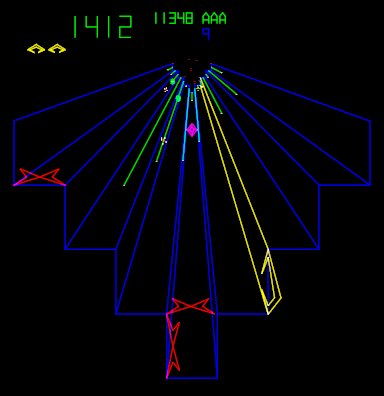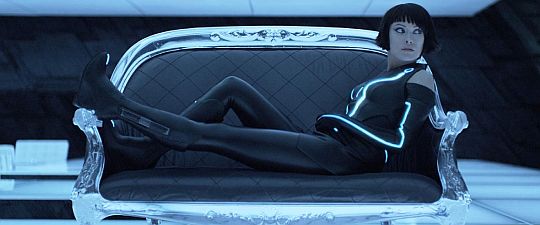Tron and the Realm of Fantastic Opportunity
 Around 1982, I was a teenager working off-the-books at the local arcade. I took out the trash, cleaned the front windows, the bathroom, and the machines for a handful of bills that'd usually get converted to tokens and fed right back into the machines.
Around 1982, I was a teenager working off-the-books at the local arcade. I took out the trash, cleaned the front windows, the bathroom, and the machines for a handful of bills that'd usually get converted to tokens and fed right back into the machines.
When I went to church, I had a trick to stay awake. I imagined playing the upper levels of Tempest.
Planning judicious use of the Superzapper is enough to get you through even the most boring sermons.
That was the year that Tron came out. And Tron spoke to me personally. I had an Apple ][+ and loved programming on it. Computers were full of so much potential, and Flynn knew how to take advantage of that. I wanted to be him.
That helped set my life on its course. I went to college, studied Computer Science, and got a job as a Programmer, just like Flynn.
I'm still a programmer, and I watch over a village of cron jobs and daemons who report to me how they're doing, and have permission to email me when they get into trouble with the other programs on the net.
Now it's 2010, and Tron Legacy has come out. Nobody's mistaking it for high art.
Tron Legacy did get some things right. In both the original and the sequel, life in the Grid was surreal, and I mean surreal etymologically. Life in the grid was above or beyond reality. In 1982's Tron, artists hand-painted the digital glow to programs in the Grid, and in 2010's Tron, only the scenes in the Grid were 3D.
There was reality, which was normal; and then there was the grid, where its reality was capable of more. I still feel that way about computers and the Internet. Nearly anything is possible.
Computers remain the realm of fantastic opportunities.


Comments